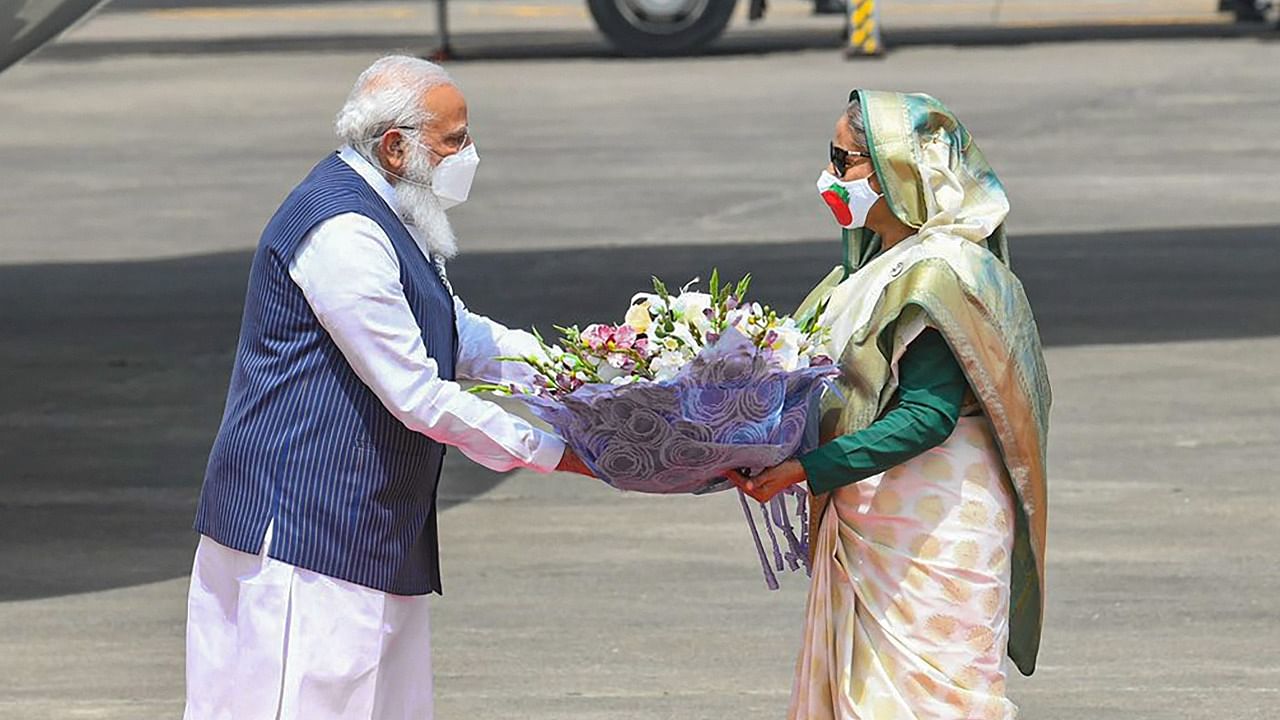
As polling for the 30 seats in the first phase of the Assembly elections in West Bengal began, Prime Minister Narendra Modi visited two Hindu temples outside Dhaka, which are places of worship, particularly of the Hindu Matua community, whose members reside in West Bengal.
Political analysts believe that Prime Minister's visit to the temples carries a political significance for the community's voters in the poll-bound state. They have pointed out that the Matuas, with an estimated population of three million in the state, can tilt the scales in favour of a political party in about 30-50 Assembly constituencies.
Addressing the Matua community in Orakandi, the Prime Minister reportedly said, "I was waiting for this opportunity for many years. During my 2015 visit to Bangladesh, I expressed my wish to visit Orakandi, and today that wish has come true."
He also met the representatives of the Matua community on the second day of his Bangladesh trip on March 27.
Who are the Matuas?
Matuas, originally from East Pakistan, are a section of Hindus who migrated to India due to religious persecution during the Partition and after the creation of Bangladesh. 'Matua', as a 'Bhakti-based religious philosophy' was introduced after years of caste discrimination faced by the Namasudras sect in the Bengali society.
"The rise of fundamentalism and rise in communal tension in East Pakistan forced Namasudras including Rajbongnshis and Matuas to migrate and settle in West Bengal," history professor Dr Manosanta Biswas was quoted as saying by News18.
TMC candidate Manoranjan Byapari explained that the Matua community has become more politically significant, as their leaders, in a bid to serve their own interests, are aligning with different political parties. "The members of the community, who comprise a sizeable part of the state's population, are hugely influenced by these leaders," he said.
Political influence
The BJP has over the years expanded its support base in the tribal-dominated Jangal Mahal region and in border areas that have a sizeable population of refugees from Bangladesh, especially the Matuas and Namshudras.
In 2015, ‘Boro Maa’ Binapani Devi’s son, Manjul Krishna Thakur, quit the TMC claiming that the government didn't allow him “to work for the benefit of my Matua community”, and joined the BJP. Political affiliations were majorly divided after the death of the 'Matua matriach' Binapani Devi, whose death was condoled by the Prime Minister himself.
“The Matuas represent the oldest organised Dalit religious movement in Bengal that started in the late 19th century in East Bengal,” Sekhar Bandyopadhyay, emeritus professor of history at the Victoria University of Wellington, told the publication.
CAA promise
The politically-influential Matuas and Namashudras voted for the Left and the TMC for decades, before shifting lock stock and barrel to the BJP during the last Lok Sabha polls, following the promise of citizenship under the newly-amended citizenship law.
Many of them have been accorded Indian citizenship but a sizeable section of the population has not got it. During a recent meeting at Thakurnagar in the North 24 Parganas district of the state, Union Home Minister Amit Shah had assured members of the Matua community about providing citizenship to them.
"While the Matuas are already citizens in the country, BJP leaders are making promises to enforce the Citizenship Amendment Act (CAA) before the Matuas at meetings after vaccination for Covid-19 gets over. This is akin to the total eradication of influenza, pneumonia and other virus-borne diseases in the world which will never happen," he had said.
(With PTI inputs)